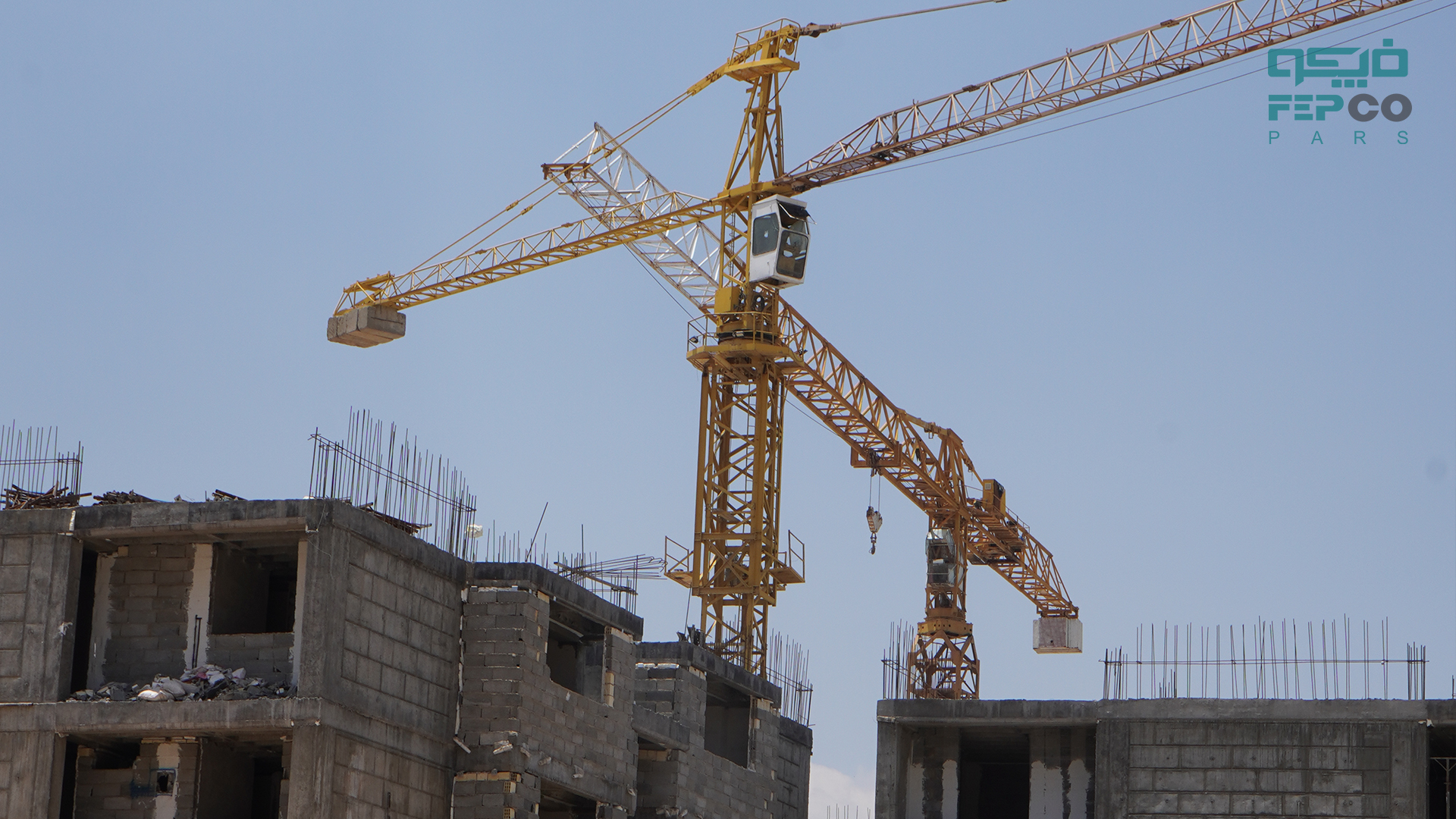In today’s world, success in the construction company relies heavily on a deep understanding of construction project management, precise planning, and the optimal use of resources. Successful construction companies understand that efficient management of large-scale construction projects requires strategic planning and meticulous execution. This article explores the key secrets to launching a successful contracting company and how to effectively manage construction projects.
This article is prepared by the Research and Development Department of Fepco ( Saman Mechanic Farayand Energy Pars ). As one of the leading companies in the construction and contracting industry, Fepco is always striving to present the best methods and techniques for managing large construction projects and developing infrastructure. In this regard, the company’s Research and Development Department, drawing from successful experiences in construction planning and resource management, aims to introduce innovative and efficient solutions for contractors and industry professionals.
How to Build a Successful Construction company? The Hidden Secrets of Managing Large Projects!
The construction company is one of the largest and most complex industries globally, where success depends on efficient management, precise planning, and proper project execution. Building a successful construction company in this field comes with numerous challenges. This article explores the key principles and techniques for building and managing a successful construction company. We will cover project management methods, contracting, and the development of construction infrastructure based on successful experiences in large-scale construction projects.
1. The Importance of Project Management in Construction Companies
One of the most crucial factors for success in construction companies is project management. Construction projects typically consist of several phases, including design, procurement of raw materials, human resource management, and project execution. Precise construction planning and optimal resource use can help reduce costs and increase efficiency. Project management means the careful coordination of all these stages and ensuring the project is completed within the set time frame and budget.
2. Contracting: The Backbone of Construction Companies
For any construction company to succeed, it must excel in contracting. Successful contracting companies utilize advanced project management and contracting techniques to efficiently execute construction projects. From contract signing to project execution, contractors must control all aspects of the project and effectively deal with potential challenges such as delays or design changes.
3. Planning and Resource Management: The Key to Success in Large Projects
Resource planning and optimal allocation are critical for any construction project. Efficient management of raw materials, human resources, and project timelines is crucial in this regard. Using resource management and construction planning software can help optimize these processes and increase the company’s productivity.
4. Infrastructure Development: From Foundation to Advancement
Infrastructure development is one of the primary goals of construction companies. Successful companies in this field not only focus on executing construction projects but also innovate and use new technologies to create advanced infrastructure that plays a key role in the development of cities and communities.
5. Launching and Growing a Successful Contracting Company
Starting a successful contracting company requires extensive knowledge of the market, customer needs, and project management. Newly established companies should focus on attracting skilled professionals, leveraging modern technologies, and delivering high-quality services. One important principle in this journey is adherence to the principles of construction project management and compliance with international standards.
6. Management Techniques for Construction Companies
Successful construction companies in Iran and worldwide use various management techniques to succeed in their projects. These techniques include using modern project management systems, adopting innovative construction methods, and closely collaborating with clients and stakeholders. Key factors for successful project management include budget control, precise scheduling, and managing risks and sudden changes in the project.
7. Success Strategies for Large Construction Projects
Success in large construction projects depends on several key factors: project planning and management, optimal resource management, and employing experienced and skilled teams. Additionally, using advanced technologies like Building Information Modeling BIM can accelerate project execution and improve accuracy in design and construction.
Building a successful construction company requires a combination of experience, expertise, and managerial knowledge. By applying project management techniques, efficient contracting, and precise resource planning, one can achieve successful construction project execution and contribute to sustainable growth and development in this industry. With its extensive experience in this field, Fepco has prepared this article to provide effective solutions for construction companies.
Construction Planning and Resource Management in Contracting Companies: Key Success Factors in Construction Projects
Construction planning and resource management are among the most critical factors for the success of construction projects. These processes require precision and coordination at all stages, from design to project execution. Below are some of the best practices for construction planning and resource management in contracting companies:
1. Utilizing Project Management Software
Project management software like Microsoft Project, Primavera, and Procore provides integrated solutions for detailed planning, resource allocation, progress tracking, and time management. These tools help you control every aspect of the project and allocate resources efficiently.
2. Detailed Project Planning with WBS
Breaking the project into smaller, manageable units using the Work Breakdown Structure WBS is an effective method for detailed project planning. This approach enables contractors to examine each section of the project individually and allocate the necessary resources. It reduces unforeseen risks and challenges while improving control over time and budget.
3. Human Resource Management
Human resource management is one of the most vital components of construction projects. Assigning skilled workers to different project areas and managing their efficiency is crucial. Contracting companies should use HR and workforce management software to properly allocate human resources and monitor performance.
4. Accurate Budgeting and Cost Control
One of the main challenges in contracting is controlling project costs. Preparing an accurate budget for each project phase and continuously monitoring expenses can prevent unexpected cost overruns. Careful financial resource planning and constant cost supervision using accounting tools like QuickBooks and Sage 100 Contractor can aid in optimal management.
5. Supply Chain Optimization
Managing construction materials and the project supply chain is another critical factor in the success of construction projects. Ensuring timely delivery of materials, reducing resource waste, and anticipating future project needs can help avoid delays. Supply chain management systems allow contractors to manage inventory effectively and prevent shortages or excessive stockpiling.
6. Precise Scheduling
Project scheduling and determining the precise execution stages are other essential aspects of construction planning. Techniques such as the Critical Path Method CPM and Gantt Charts can help you accurately sequence activities and estimate the time required for each phase. These tools aid in optimizing project duration and resource allocation across various stages.
7. Risk Management
Identifying and predicting risks related to construction projects and planning to address them are critical. Using risk management methods, contractors can minimize potential negative impacts and develop contingency plans for unforeseen problems. Risk analysis techniques like SWOT and PERT can help identify and manage risks effectively.
8. Communication and Coordination Between Teams
One of the most important factors for success in resource management and construction planning is effective communication and coordination between different project teams. Using communication management software and holding regular meetings can increase coordination and reduce misunderstandings. Optimal communication between design, execution, and project management teams significantly boosts productivity.
9. Quality Control
Ensuring the quality of work and compliance with construction standards is crucial. Implementing strict quality control processes from the start to the end of the project and using quality inspection tools can prevent rework and enhance productivity. Regular inspections and employing quality control experts are essential for project success.
10. Flexibility in Managing Changes
Changes are usually inevitable in construction projects. Contractors must anticipate flexible systems for managing these changes. Change management techniques, including updating plans and resources and using tools to forecast changes, can help manage changes effectively.
Effective construction planning and resource management are key success factors for contracting companies in construction projects. Using project management software, human resource management, cost control, precise scheduling, and risk management can help increase efficiency and reduce project issues. By adhering to these methods, contracting companies can execute their projects with greater accuracy and success.
Conclusion
This article has explored effective strategies and techniques for building a successful construction company, analyzing key factors in the management and execution of construction projects. It has examined various factors that influence the success of contracting companies, including project management, construction planning, and resource management.
Success in the construction company depends on contractors’ ability to manage the complexities of large-scale projects. The secrets to managing large construction projects involve optimizing resources, utilizing modern management techniques, and detailed planning—all of which have been comprehensively covered in this article. Additionally, launching a successful contracting company requires managerial knowledge and strategic planning, enabling companies to thrive in a competitive market.
Key points for the successful execution of construction projects and infrastructure development include the use of advanced project management tools, budget control, and close monitoring of various project phases. The best construction project management methods, along with proven managerial techniques for construction companies, have been introduced in this article as essential pathways to success.
Fepco ( Saman Mechanic Farayand Energy Pars ), through this article, aims to offer solutions that can help construction companies in Iran and other countries implement these techniques to improve performance and achieve greater project success.
Frequently Asked Questions
1. How can one start a successful construction company?
To start a successful construction company, begin with detailed planning. Hiring skilled professionals, developing effective project management strategies, and utilizing modern construction technologies are key factors for success. Additionally, focusing on customer satisfaction and delivering high-quality services from the start to the end of a project is essential.
2. What are the secrets to managing large construction projects successfully?
Managing construction projects requires precise planning, effective task delegation, and continuous monitoring of resources and costs. Using risk management techniques and advanced project management tools like Primavera or MS Project can significantly contribute to the success of a project.
3. How can resource management be optimized in construction projects?
Optimal resource management involves the proper allocation of labor, materials, and equipment. Using resource management software, you can streamline resource allocation and prevent waste. Construction planning and accurately forecasting project needs are key to success in this area.
4. What factors influence the success of contracting companies in the construction industry?
The success of contracting companies depends on a combination of technical expertise, strong project management, and execution capabilities. Effective communication with stakeholders, budget control, precise scheduling, and building specialized teams are important factors for success in construction companies.
5. What management techniques are recommended for construction companies?
Management techniques include task breakdown based on the Work Breakdown Structure WBS, using the Critical Path Method CPM for accurate scheduling, and budget control through accounting and financial tools. Continuous monitoring of project progress and leveraging modern project management technologies also contribute to success.
6. How can risks be managed in large construction projects?
Risk management involves identifying and evaluating potential hazards and planning to address them. Risk analysis methods like SWOT and implementing contingency plans during crises can help control projects more effectively.
7. What are the best construction planning methods?
Successful planning methods include using advanced project management software, setting precise schedules for activities, and systematically assigning responsibilities. Continuous quality control and monitoring of consumed resources are also of great importance.
8. How can costs be controlled in construction projects?
Cost control requires accurate budgeting and continuous tracking of ongoing project expenses. Using financial software such as Sage 100 Contractor and implementing professional accounting processes at every stage of the project can help manage costs more effectively.
9. How do successful construction companies in Iran operate?
Successful construction companies in Iran achieve success by employing skilled professionals, leveraging modern technologies, and focusing on delivering high-quality services to their clients. These companies have also succeeded in the competitive industry by adhering to international standards and managing projects effectively.
10. How can modern technologies be utilized in construction projects?
Utilizing modern technologies like Building Information Modeling BIM, drones for project progress monitoring, and project management software can improve accuracy, reduce costs, and accelerate project timel






